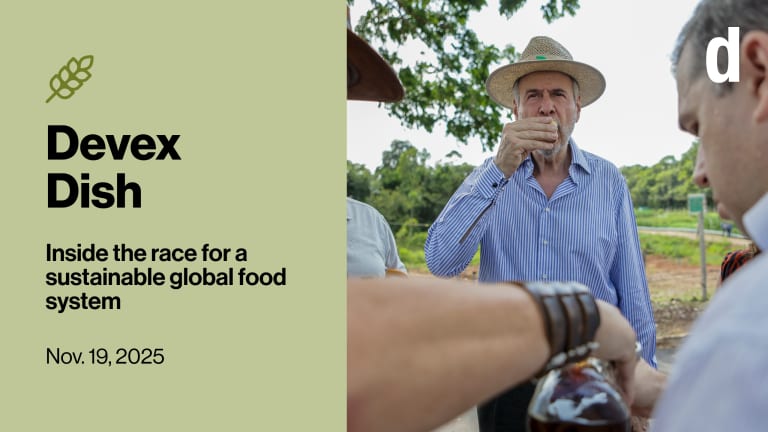After years of fighting a losing battle against weather conditions in Reru, a village in rural western Kenya, Mary Ogello was finally able to make peace with a climate that has been increasingly erratic, swinging wildly between extremes and serving up higher and higher temperatures.
When she was armed with detailed insights about things such as when the rainy season should begin and the likelihood of floods or drought, Ogello was able to make important decisions about the best crop varieties to plant and when to plant them, and to then select optimal times for weeding her crops and feeding them fertilizer.
The results she and her fellow farmers achieved were dramatic: yields for maize and sorghum were three to four times above normal.
Printing articles to share with others is a breach of our terms and conditions and copyright policy. Please use the sharing options on the left side of the article. Devex Pro members may share up to 10 articles per month using the Pro share tool ( ).








